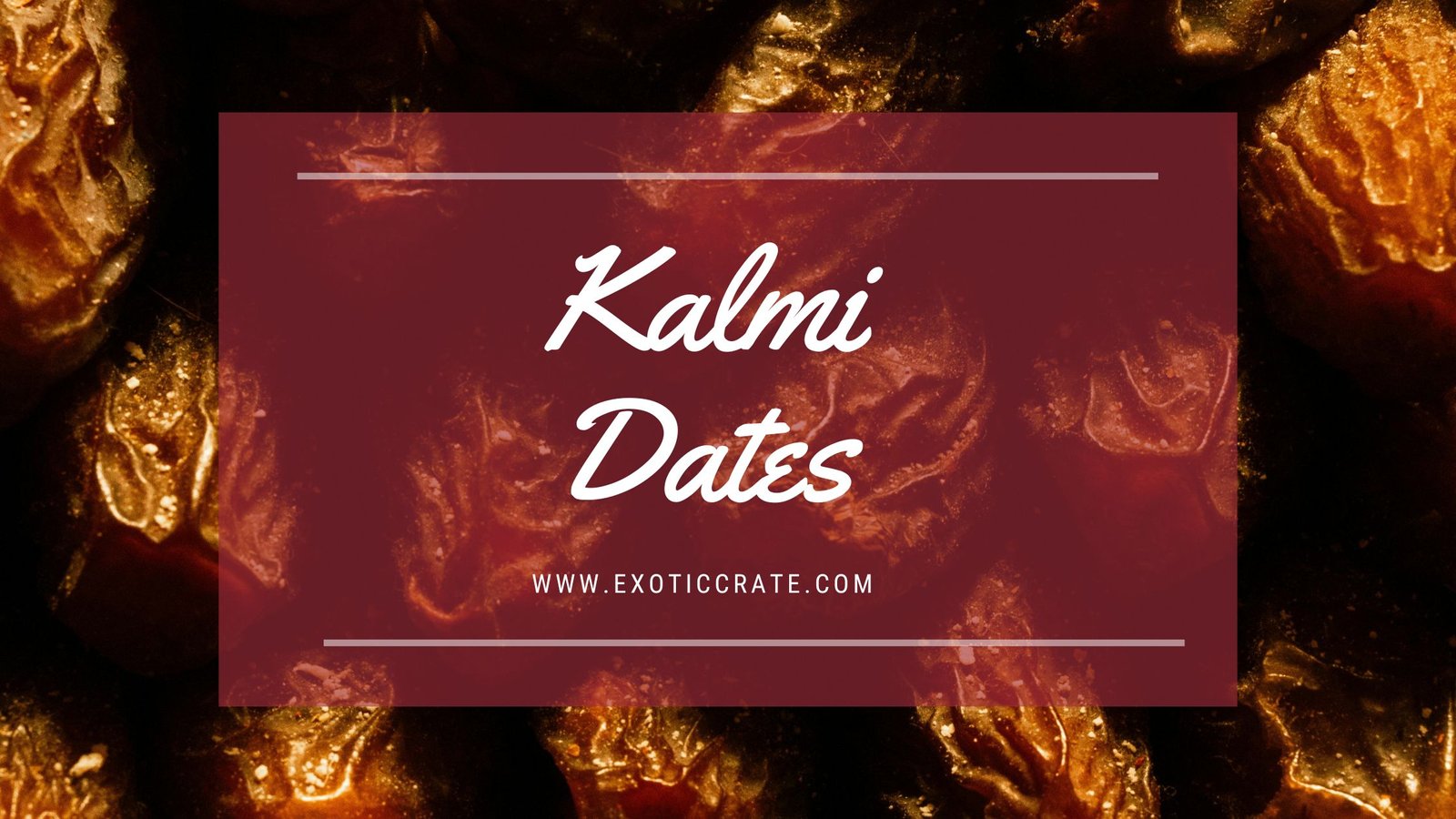Dates are more than just a sweet treat — they are cultural treasures, health boosters, and deeply rooted in traditions across the Middle East and South Asia. Among the many date varieties, Kalmi dates hold a special place. Known for their balanced sweetness, firm texture, and longer shelf life, Kalmi dates have become a preferred choice among consumers looking for a high-quality, everyday dry fruit.
But what makes Kalmi dates stand out from other well-known varieties like Ajwa, Medjool, Mabroom, or Safawi? To understand that, we must look deeper into their origin, flavor, and usability — all of which contribute to their growing popularity across homes and health-conscious communities in India and beyond.
A Closer Look at Kalmi Dates
Kalmi dates, often sourced from Saudi Arabia, are smaller than Medjool but denser and darker in appearance. Their semi-dry texture makes them easier to store and handle, especially in warm climates like India’s. Unlike overly soft varieties that can feel sticky or overly sweet, Kalmi dates strike a pleasant balance — they’re naturally sweet but not cloying, firm without being tough, and ideal for daily consumption.
One of the key reasons behind their popularity is their versatility. Kalmi dates are equally suited for religious rituals like Ramadan Iftar, for gifting during Diwali or weddings, or simply as a nutritious snack. Their long shelf life and resistance to spoilage make them especially suitable for Indian households, where storage conditions may not always be optimal.
How Kalmi Dates Compare to Other Popular Varieties
When placed alongside premium varieties like Ajwa or Medjool, Kalmi dates may appear modest at first glance. Ajwa dates, for instance, are known more for their religious and historical importance than taste, and while they’re often revered during religious occasions, they tend to be drier and less sweet. Medjool dates, on the other hand, are rich, soft, and juicy — excellent for desserts or smoothies, but they also come at a much higher price and require refrigeration for longevity.
Kalmi dates offer a more practical choice. Their texture is firm enough for portability but soft enough to chew with ease. They don’t require refrigeration, are more affordable than Medjool or Ajwa, and can be enjoyed in more ways — from stuffing them with almonds for a nutritious snack to using them in energy bars or date-based sweets.
Even when compared with varieties like Mabroom or Safawi, Kalmi holds its ground well. Mabroom dates are chewier and have a toffee-like flavor, but can be difficult to digest for some. Safawi dates, while soft and rich, tend to be more fibrous and are better suited for specific tastes. Kalmi dates, on the other hand, cater to a broader palate and lifestyle, perfect for children, elderly family members, and health enthusiasts alike.
The Health Benefits Behind the Sweetness
Like all premium dates, Kalmi dates are rich in fiber, potassium, and natural sugars. They are a great source of quick energy, making them an ideal pre- or post-workout snack. Their fiber content supports digestion, and the presence of iron and calcium adds further to their value, especially for those looking to supplement their diets naturally.
However, it’s the balance that Kalmi dates offer — in sweetness, nutrition, and usability — that makes them truly unique. Unlike some of the softer varieties that spike blood sugar more quickly, Kalmi dates are often recommended in moderate amounts for people managing their sugar intake. They are filling without being heavy and provide steady energy throughout the day.
Everyday Luxury, Gifting, and Tradition
In Indian households, dates often make their way into celebrations and daily routines. Whether it’s breaking a fast or packing a child’s lunchbox, Kalmi dates are a reliable, tasty, and wholesome choice. Their elegant look, uniform size, and natural shine make them an excellent gift as well. Exotic Crate, for instance, offers premium Kalmi dates in thoughtfully designed packs perfect for festive gifting or personal indulgence.
Moreover, they are a cultural connector. Consumed during Ramadan, served at traditional ceremonies, or shared as prasad in religious events, dates — especially Kalmi — carry meaning beyond nutrition. They represent hospitality, abundance, and wellness. And in today’s health-focused world, they’re finding a new identity as natural superfoods.
Conclusion
In a market filled with a wide range of date varieties, Kalmi dates stand out for their practicality, health benefits, and delightful taste. They may not be as extravagant as Medjool or as symbolic as Ajwa, but they offer the perfect balance of everything a consumer looks for in a date — nutrition, taste, affordability, and shelf life.
Whether you’re looking to adopt a healthier snacking habit, searching for thoughtful gift options, or simply want a premium dry fruit that doesn’t disappoint, Kalmi dates from Exotic Crate are an excellent choice. They are a reminder that sometimes, the most valuable things aren’t the flashiest — they’re the ones that quietly fit into your life and improve it, bite after bite.
FAQs About Kalmi Dates
1. Are Kalmi dates good for daily consumption?
They are ideal for daily snacking due to their natural sugars, fiber, and rich nutritional value.
2. Do Kalmi dates help with digestion?
Absolutely. The fiber content in Kalmi dates helps regulate digestion and supports gut health.
3. What is the shelf life of Kalmi dates?
Kalmi dates have a long shelf life and can last several months when stored in a cool, dry place.
4. How do Kalmi dates differ from Medjool?
Kalmi dates are smaller, drier, and have a more balanced sweetness compared to the juicy, soft, and larger Medjool variety.
5. Where can I buy authentic Kalmi dates?
You can purchase premium, authentic Kalmi dates from Exotic Crate, which are available in hygienic, ready-to-ship packaging.



